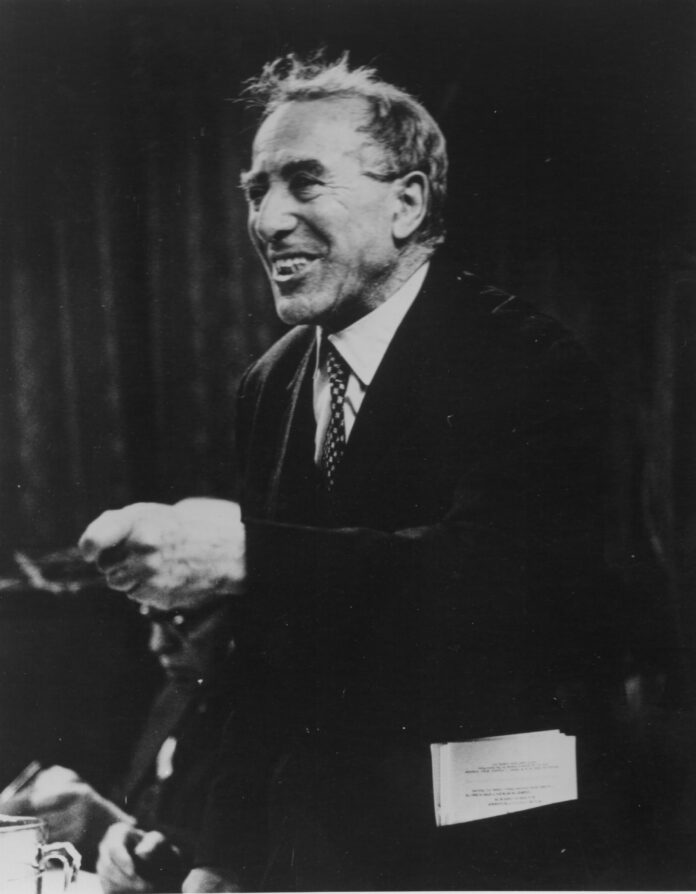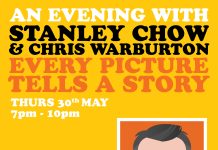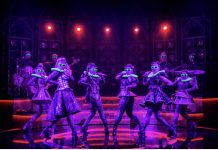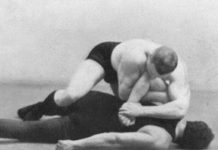This September, as part of the European Days of Jewish Culture and Heritage, Manchester Jewish Museum will host two events in its historical Grade II* listed Synagogue to celebrate Jewish art and history.
European Days of Jewish Culture and Heritage (EDJCH) is an annual project, initiated by the B’nai B’rith Lodge in Strasbourg and organised in collaboration with the European Council of Jewish Communities and the Spanish Jewry Network. It has celebrated its 20th anniversary in 2019 and is now considered one of the major cultural routes in Europe. This year, this fascinating project will run from the 1st of September until the 31st of December. During this time, Manchester Jewish Museum will join EDJCH with two events:
On Thursday, 8 September, the museum, in partnership with the Manchester Poetry Library and Manchester Metropolitan University Writing School, will organise an evening of poetry, film and conversation, exploring the life and work of Avram Nachum Stencl, one of Britain’s foremost but now largely forgotten Yiddish poets.
Avram Stencl was born in Poland in the late 19th century into a rabbinical dynasty. In 1936 he was arrested by the Gestapo and when released, he escaped and arrived in London as a stateless refugee and settled in the heart of the Yiddish speaking Jewish quarter of Whitechapel, which he affectionately called his ‘Jerusalem of Britain.’ His poems were strongly inspired by observing the busy life in the Jewish cafes, markets and the vibrant street life of Whitechapel.
With the help of Dora Diamant, Kafka’s lover, Stencl established the Sabbath afternoon Literary meetings, known as the Friends of Yiddish. The gatherings were packed out and noisy and they attracted people from different backgrounds and communities. Guest writers came from abroad to read, others performed the great Yiddish classic writers, sung songs or discussed politics.
As the community died or moved away, the meetings got smaller and smaller but Stencl never gave up, and even if only one person came he kept the group going until he died in 1983.
The event will be hosted by Dr Rachel Lichtenstein, whose grandparents were Polish Jews and who, like Stencl, settled in East London in the 1930s after escaping Nazi persecution.
There will also be a screening of a short film and radio documentary about Stencl , readings of his poetry in English by the poet, editor and translator Stephen Watts, as well as in Yiddish by Vivi Lachs, author of London’s Yiddishtown and a talented musician. Rachel will also interview Miriam Becker, Stencl’s great niece from Manchester to discover her experience of living in the city and memories of Stencl. We will also hear from Professor Dovid Katz, one of the greatest contemporary Yiddish scholars and a close personal friend of Stencl’s, who personally attended The Friends of Yiddish meetings for many years. There will also be a Q&A session at the end.
The second event will take place on Sunday, 11 September and will be centred around history and film. The museum will organise a screening of ‘Truus’ Children’, a documentary directed by two Dutch directors, Pamela Sturhoofd and Jessica van Tijn.
The film tells the extraordinary story of the largely unknown Dutch resistance heroine Truus Wijsmuller (1896-1978), who managed to rescue more than 10.000 people from the hands of the Nazis in the years immediately before and during the Second World War thanks to her unprecedented perseverance, tact, and courage. Most of them were between 2 and 18 years old. This improbable story, hidden for almost 80 years, comes to life in great detail in the documentary. Filmmakers Pamela Sturhoofd and Jessica van Tijn spent years researching for this documentary and were able to find more than 20 “Children of Truus” worldwide – all between 83 and 97 years old.
In the documentary, the group of survivors pays tribute to this special woman who saved their lives. Her strength and the message that everyone can make a difference were the biggest inspirations during the four years of making the documentary. The filmmakers see the film as a first step in highlighting the great role of women in the resistance during the Second World War. Currently, Pamela and Jessica travel to different places in the world to talk to audiences, often young people and students, about the main themes of the film and to see the present through the eyes of the film’s protagonists.
After the screening, there will be a Q&A session with Manchester Jewish Museum’s curator Alex Cropper and the documentary’s director Pamela Sturhoofd as well as Margaret Jacobi, a descendent of one of Truus’ children. There will also be a special screening before the film of interviews with refugee children who came to Manchester, these recordings are part of the larger Truus Children archive.
This event is now bookable at https://www.







